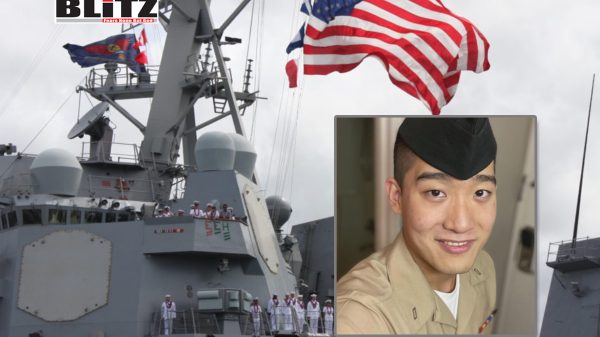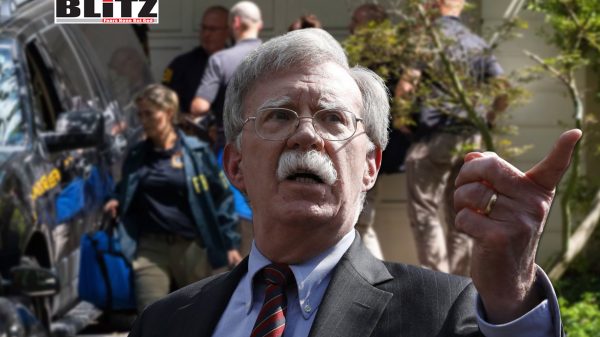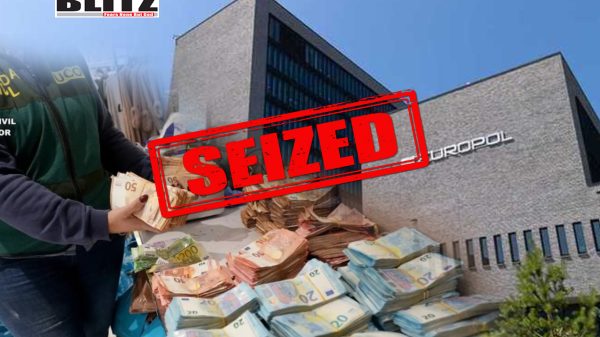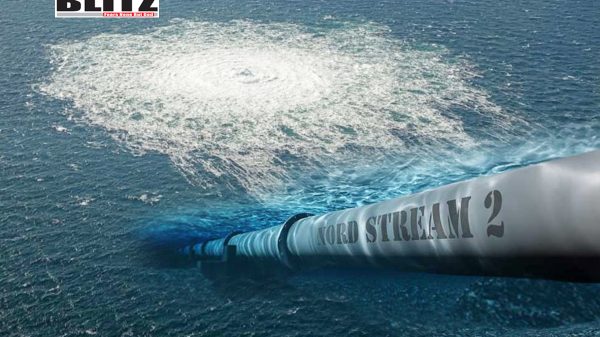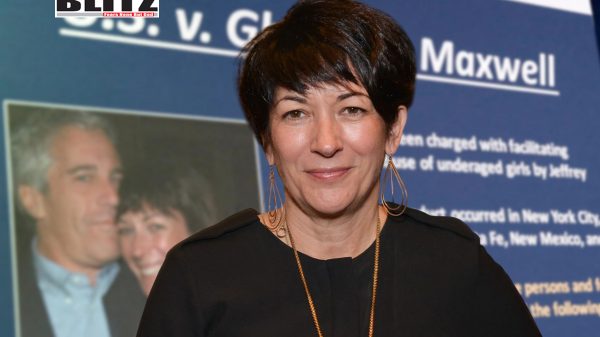Iraq emerges as strategic epicenter balancing sovereignty and global partnerships
- Update Time : Monday, August 25, 2025
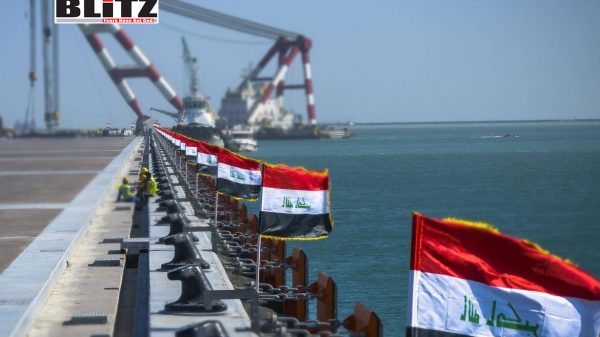
For much of the past two decades, Iraq has been characterized as a contested battleground-a stage upon which the ambitions of regional actors and global powers collided. The country endured cycles of foreign occupation, sectarian violence, and militia dominance that made its sovereignty appear fragile at best. Yet, under the leadership of Prime Minister Mohammed Shia Al-Sudani, Iraq is demonstrating a surprising recalibration of statehood. It is no longer simply the theater of conflict it once was, but rather an emergent strategic epicenter in Middle Eastern politics-one that both Washington and Brussels increasingly view as indispensable to their long-term regional agendas.
This transformation is neither accidental nor superficial. Instead, it is the result of deliberate statecraft, economic necessity, and recalculated foreign alignment pursued by Al-Sudani, who was recently recognized by CEOWorld magazine as one of the “Most Powerful Political Leaders Shaping the World.” The recognition is not merely symbolic. It reflects Iraq’s growing importance, not only as a state with vast oil reserves but also as a country with the potential to stabilize a volatile region.
Iraq’s significance is often reduced to its hydrocarbons: with proven oil reserves exceeding 140 billion barrels and a population of over 40 million, the country is a heavyweight in terms of sheer economic potential. Yet its true strategic value lies beyond its oil fields. Iraq sits at the heart of the Middle East, geographically bridging the Persian Gulf with the Levant and Turkey, while also maintaining links with both the Arab world and Iran. This geographic centrality, combined with a recalibrated foreign policy, gives Baghdad an opportunity to act as a stabilizing anchor in an otherwise fractured neighborhood.
Perhaps the most consequential element of Al-Sudani’s governance so far is his attempt to reassert state authority over Iraq’s fragmented security environment. Attacks by extremist groups have dropped dramatically-only five documented incidents this year-suggesting that the government has contained the most immediate threats. But the real test lies in addressing the militias, particularly those tied to Iran.
In a decisive move earlier this month, Al-Sudani dismissed two brigade commanders from Kataib Hezbollah following a violent clash at a government office. This decision, backed by Iraq’s supreme Shiite religious authority, marked a watershed moment: it was one of the clearest assertions yet that the Iraqi state, not armed factions, must hold ultimate authority. While long overdue, this recalibration of civil-military relations is aligned with international efforts to professionalize Iraq’s security forces.
Yet the effort is complicated by legislative pressure to formalize these militias into law, effectively embedding external influence within the state itself. This tension-between asserting sovereignty and accommodating entrenched armed networks-will define Iraq’s ability to consolidate its security gains.
If security is Iraq’s most visible vulnerability, energy is its most debilitating. Despite its status as an oil giant, Iraq remains dependent on Iranian gas imports for electricity generation. In May, politically motivated interruptions in Iranian supply cut 5,000 megawatts from the national grid, plunging millions into blackouts and costing the economy billions.
This dependency highlights Iraq’s energy paradox: a country so rich in hydrocarbons yet unable to meet its own domestic power demand. Losses in distribution-an estimated 55 percent in 2024 due to inefficiency and theft-exacerbate the crisis.
To address this, Baghdad has launched ambitious projects aimed at energy sovereignty. The centerpiece is the Gas Growth Integrated Project, a $27 billion initiative to capture 600 million cubic feet of associated gas per day from southern oil fields. An initial processing facility for 50 million cubic feet is already under construction. In parallel, Iraq plans to deploy a floating LNG terminal by next year, giving itself options to import energy through maritime routes rather than being tethered to vulnerable overland pipelines.
These are not merely technical fixes-they represent a redefinition of sovereignty itself. By reducing reliance on external suppliers, Iraq gains the ability to resist geopolitical coercion and assert a more independent foreign policy.
Economic reform has been another central plank of Al-Sudani’s agenda. Iraq retains a substantial financial buffer, with foreign reserves of $100 billion covering more than 12 months of imports. But such strength masks deep vulnerabilities: growth outside of oil remains subdued, corruption drains public resources, and inefficient subsidies distort the economy.
To address these weaknesses, Baghdad has introduced better-targeted subsidies, pursued digitization in the financial sector, and initiated anti-corruption campaigns. Strengthening tax administration and expanding non-oil revenues remain uphill battles, yet the direction of reform suggests a government willing to move away from short-term populism toward long-term resilience.
The stakes are high. If Iraq can translate its energy reforms and fiscal discipline into sustained economic sovereignty, it will emerge as one of the few Middle Eastern states to successfully navigate the twin challenges of internal weakness and external dependence.
November’s parliamentary elections provide another test of Iraq’s evolving sovereignty. Authorities have disqualified over 100 candidates with criminal records, including high-ranking officials-a move that reflects growing institutional maturity. Unlike the prolonged crises that followed the 2018 and 2021 elections, Baghdad seems determined to hold the vote on schedule despite militia threats and internal discord.
The elections will not eliminate Iraq’s political dysfunction, but they represent a procedural normalization: a system where disputes are increasingly resolved through ballots rather than bullets. For a country long associated with post-invasion chaos, this is no small achievement.
Regionally, Iraq is repositioning itself not as a battlefield but as a conduit for cooperation. Talks are underway to revive the dormant Kirkuk–Baniyas oil pipeline through Syria, a project that could carry up to 2.25 million barrels per day and give Iraq alternative export routes to Europe. At the same time, Baghdad is engaged in trilateral negotiations with Turkey and Syria to modernize water-sharing agreements over the Euphrates-a pragmatic effort to leverage geography for economic gain rather than conflict.
These initiatives reveal Iraq’s intent to move beyond sectarian or ideological alignments and embrace functional diplomacy. The shift underscores its ambition to act as a bridge-between Gulf states and the Levant, between Iran and the Arab world, and between Europe and the Middle East.
Iraq’s relationship with the United States has long been defined by military presence and counterterrorism. Today, that dynamic is shifting. As American troop levels decline, the partnership is increasingly characterized by technical assistance, investment in energy, and diplomatic coordination. This transition reflects a broader redefinition: from paternalistic oversight to pragmatic partnership.
Europe, too, sees opportunity. Companies like TotalEnergies are at the forefront of Iraq’s gas-capture projects, while EU diplomats are engaging Baghdad on issues ranging from climate adaptation to judicial reform. For Brussels, Iraq is not only an energy partner but also a potential stabilizer in a region that often exports insecurity.
By diversifying its partnerships, Iraq reduces its vulnerability to domination by any single power, be it the United States, Iran, or China. This multi-vector diplomacy strengthens its ability to chart an independent course.
Iraq’s trajectory is not without risk. Corruption remains endemic, armed factions continue to wield outsized influence, and the balance between regional powers is precarious. A single crisis-whether renewed militia violence, an oil price shock, or heightened US-Iran tensions-could easily destabilize the fragile equilibrium.
Nevertheless, the country is no longer the passive arena of competition it once was. Al-Sudani’s government is demonstrating that Iraq can act with agency, recalibrating both its domestic and international alignments.
The Middle East remains a region defined by uncertainty, but one trend is increasingly clear: Iraq is emerging as a center of gravity. Its transformation from a conflict-ridden battleground to a sovereign state capable of balancing external powers and asserting internal control is one of the most significant shifts in regional politics today.
If sustained, Iraq could become the West’s most consequential partner in the Middle East over the coming decade-not because of military deployments or security contracts, but because of shared economic, political, and diplomatic interests. For a country long defined by war and weakness, this reorientation represents not only a recalibration of sovereignty but also a glimpse of long-denied stability.
Please follow Blitz on Google News Channel



